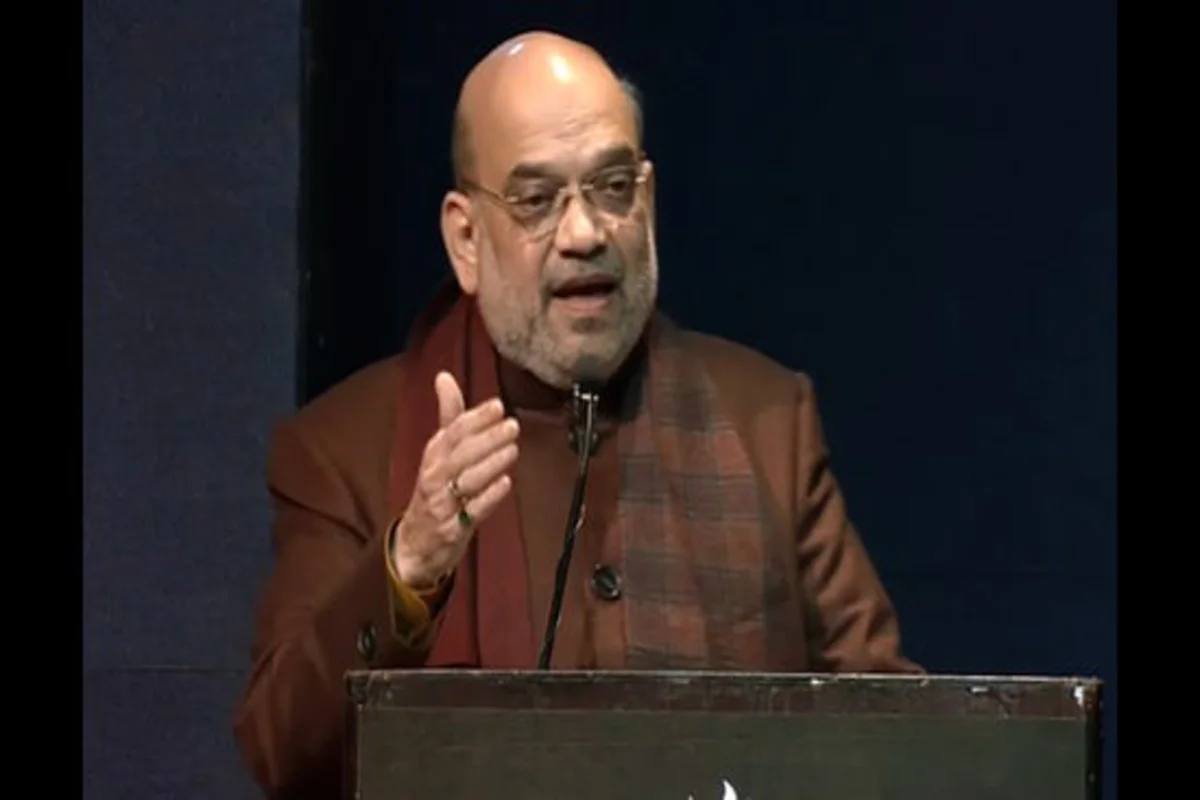According to Union Home Minister Amit Shah, the armed revolutions against the British in India laid the groundwork for the success of the Congress’ nonviolent movement.
He continued to say that even though the armed revolution and its activists encouraged millions of Indians to join the Independence campaign and kindle the torch of patriotism in their hearts, they were never given the credit they deserved in the history of India’s freedom war.
The home minister was addressing the crowd at the Revolutionaries book launch by economist and member of the prime government’s economic advisory council Sanjeev Sanyal.
“Had there been no parallel stream of armed movement flowing, attaining Independence would have taken a few decades’ more time,” Shah said.
Non-violence movement against the British had its own significance and contribution in making India free
“It is true that the non-violence movement against the British had its own significance and contribution in making India free. But to mean that the armed revolution was insignificant; to prove the importance non-violent movement by parading the armed revolution as sporadic, disorganised and individual struggles, is not correct,” he added.
Shah said that the armed revolution for India’s Independence was not done justice in the way history was written and, on an emotional note, said: “people who had the responsibility of telling the complete story of India’s independence movement and from an Indian perspective did not do their job well.”
“They don’t know that the day Bhagat Singh was executed, every family from Lahore to Kanyakumari was so choked with grief that they could not have their meal,” Shah said, adding “this ignited the flame of patriotism in every Indians’ heart and none can deny that it galvanised the freedom struggle.”
“Just because Bhagat Singh’s supreme sacrifice did not lead to independence immediately does not make his sacrifice less important. It is true not only of Bhagat Singh but also about the entire stream of armed revolution,” he added.
Additionally, he questioned if the consciousness raised by the Gadar Party movement and Bankim Chandra Chattopadhyay’s poem Vande Mataram were unimportant.
Taking aim at Congress, without naming the rival political party, Shah said: “I am in the field of politics so I do not want delve further here on this issue because it might lead to politicisation, but it is true that these revolutionaries never got adequate space in our history”.
Shah stated that the demand for Purna Swaraj was only made by Congress in 1930.
DON'T MISS
Shah insulted the Left liberal and Communist historians by using terminology like Angrez and Angreziat without naming them. After the Angrez fled India, “this history is recounted from the perspective of the Angreziat.”
Concentrates on lesser-known aspects of India’s freedom movement
The home minister pointed out that Sanyal’s book concentrates on lesser-known aspects of India’s freedom movement and dispels a common misconception that, in his opinion, has been continuously hammered into the public’s consciousness through education, mythology, and historical writing.
“If we analyse the history of India’s independence struggle, we find that varied individuals, organisations, thoughts, ideologies and paths aimed at attaining the same goal. Freedom at last was the outcome of their collective efforts,” he added.
“Pride in the heritage and freedom from the symbols of slavery- are two significant parts of the Panch Prans mentioned by the Prime Minister (Narendra Modi).
A great nation cannot be built by citizens who are not proud of their background. He continued, appealing to historians and history students to write a “correct and glorious history of India’s independence struggle” by citing 300 people and 30 great empires other than the Mughals who ruled for more than 200 years. “And the people who carry traditions, beliefs, and thoughts that were imbibed during the period of slavery cannot liberate the thought process nation from the fetters of slavery,” he said.
Shah pointed out that Sanyal’s book explores the life of nationalist leader Veer Savarkar, spiritual figure Sri Auribindo, who desired to see India become Viswaguru, the Gadar Movement, the Andaman Islands’ cellular jail, the Hindustan Republic Association, the Chittagong arms raid, and the valiant deeds of Netaji.
Keep watching our YouTube Channel ‘DNP INDIA’. Also, please subscribe and follow us on FACEBOOK, INSTAGRAM, and TWITTER.
